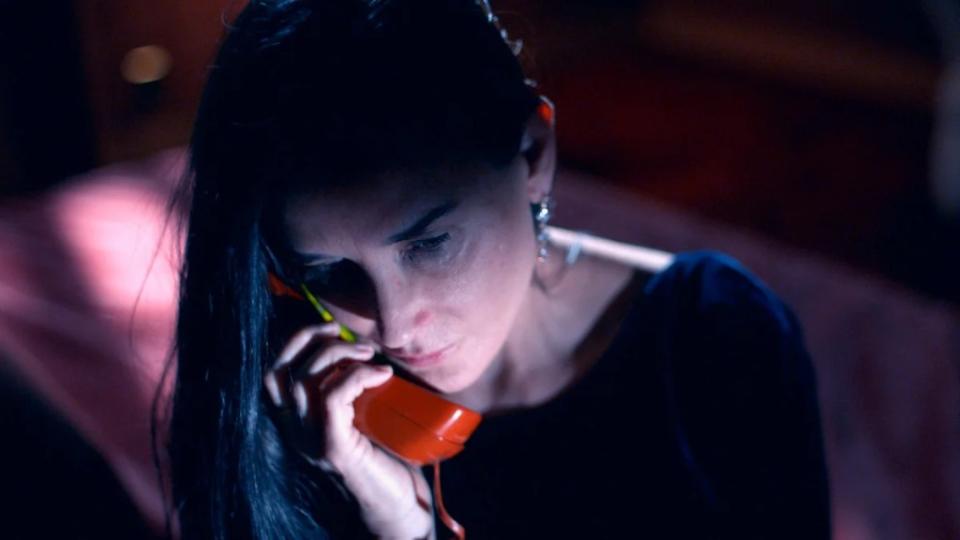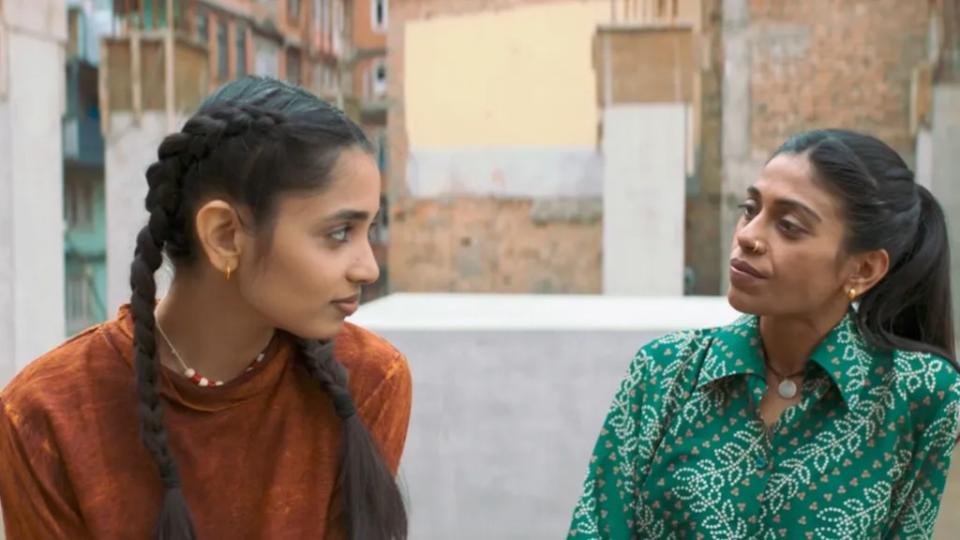Women Recoil in Cannes as Harvey Weinstein Still Looms, While a Sexist System Persists
CANNES — How should one react to the unwelcome news that Harvey Weinstein has been calling friends at the Cannes Film Festival, pulling strings and phoning in favors to get friends into parties and onto yachts?
TheWrap broke this story on Sunday, the same day that Kering’s Women in Motion, in partnership with the festival, bestowed a number of awards on leading women in film, including Universal’s Chief Content Officer Donna Langley, at its gala dinner. The dinner took place at a medieval castle on a cliff overlooking the harbor, with dramatic lights and good intentions and gowns and jewels and lots of media.
But it is very hard to feel like progress is being made for women when the spectre of Weinstein, a convicted rapist, hangs in this place where for decades he preyed on women.
For the record, Weinstein has denied that he made calls to help friends go to parties. Nonetheless, TheWrap spoke to two individuals who confirmed he had done so, and two others who said that Weinstein has reached out to former colleagues in Europe to discuss plans to eventually restart his career.
Cannes has always been a touchstone for Weinstein’s successes in film from “Pulp Fiction,” which won the Palme d’Or, to “The Artist,” the French film he acquired and took to Oscar glory. It has now become a touchstone for the painful past that #MeToo brought to light, with Weinstein as its central malignant force.
It was just a few days ago that actress and now director Judith Godrèche debuted her short film “Moi Aussi”/“Me Too” at the festival, a project that flowed directly from her decision to speak out against a famous French director who abused her as a teenaged actress. (She is also a Weinstein survivor.)
I got to interview her at our live Cannes studio about the film, and Godrèche called Weinstein’s rape conviction reversal “a nightmare.” It’s a nightmare that seems never to end.
The notion of Weinstein’s even distant presence re-traumatizes women in the industry everywhere. Rosanna Arquette, another survivor, wrote me on Monday, distraught: “It is shocking and disturbing especially for the women who were on the stand,” she said. “You see indeed that patriarchy is a brutal monster and we still have much work to do.”

How true that is. The patriarchy persists.
Only four of the 22 films in the main competition this year — less than 20% — were made by women filmmakers, including “Bird” by Andrea Arnold, about a young woman grasping for stability in a British slum; “The Substance” by Coralie Fargeat, a darkly funny, primal scream against the demand for women’s physical perfection; “Wild Diamond” by Agathe Riedinger, about a young woman desperately seeking fame as a social media influencer or reality star; and Payal Kapadia’s “All We Imagine As Light,” about the life and struggles of a young woman and her roommate in Mumbai.
And with all the big, bold ideas we are seeing on the screen at the festival so far (as Steve Pond wrote about on Monday), notably few of them are from women, even with leading feminist filmmaker Greta Gerwig presiding over the jury.
Why still so few?
It is difficult to pinpoint the reasons for so few women directors, as the gender split in other categories is not particularly better. Are there insufficient submissions from women? Does the work simply not measure up? Or do women not receive the funding that men can more easily access?

Stacy Smith, who leads the USC Annenberg Inclusion Initiative and came to speak at Kering’s space about women in film, has recent research related to roles for women in front of the camera.
Only 30 of the 100 top-grossing movies in 2023 had a girl or woman in a lead or co-lead role, a substantial downturn from 2022 when 44 films had a girl or woman lead, according to the research.
The overall pictures suggests a backward slide. Some have suggested that Cannes should consider a fixed quota for female directors, as Sweden has instituted for movies with public financing.
The connection to sexual abuse in France is not incidental. On May 14, 140 signatories published a petition in Le Monde saying it was time for France to take serious action over the fact that 94% of rape cases in the country are overturned.
In response, Cannes issued an email to accredited guests, containing an abuse helpline number, and a text which stated it has a zero tolerance attitude towards sexual abuse and discrimination of any kind.
“Since 2018, the Festival has been committed in the fight against sexual harassment and violence during the event by implementing a dedicated assistance unit,” the festival wrote. “This commitment is essential at a time when cinema, shaken by revelations of sexual violence that has gone on for far too long, must enter into a new era of awareness and collective action.”
And yet, here looms Harvey. A symbol if nothing else.
Year after year so many of the stories I see here from all over the world about women are stories of oppression, about women yearning to simply exist. This year is no different. “The Shameless,” in the Un Certain Regard section, knocked me sideways in its searing portrayal of a hardened prostitute in India and her love affair with a beautiful young teenager who was being groomed for the same. Talk about brutal patriarchy. The film opens with the lead character cleaning her knife after stabbing her client to death, a police detective. “He deserved it,” she says later, and the audience believes her.

At the other end of the economic spectrum, “Julie Keeps Quiet,” a Belgian film by first-time director Leonardo Van Dijl in the section for up-and-coming directors, La Quinzaine (Directors Fortnight), is a quiet and devastating portrait of Julie, a rising star at an elite tennis academy whose coach is suspended for sexual misconduct. This happens after another star athlete commits suicide.
So what happened to Julie? Julie won’t say.
As The Guardian wrote: “‘Julie Keeps Quiet’ is a tense, absorbing movie of silences and absences, of difficult terrain skirted around, of subjects avoided. It’s a reminder that in key situations, to keep quiet is a stressful, strenuous and, crucially, public activity — and a survival instinct that many young people have to learn.”
“People?” Don’t we really mean young women, whether actresses like a young Godrèche or a rising tennis star, who seem to be fed the message to shut up and play along? Who only have their voices heard after years of abuse and dozens of victims?
I wish it were different. I wish I could come to the Cannes Film Festival and know that this painful chapter was behind us. That women have been seen and heard. That the festival has cemented progress for female stories and female storytellers.
But it just isn’t the case. Not yet, anyway.
The post Women Recoil in Cannes as Harvey Weinstein Still Looms, While a Sexist System Persists appeared first on TheWrap.

 Yahoo News
Yahoo News 
